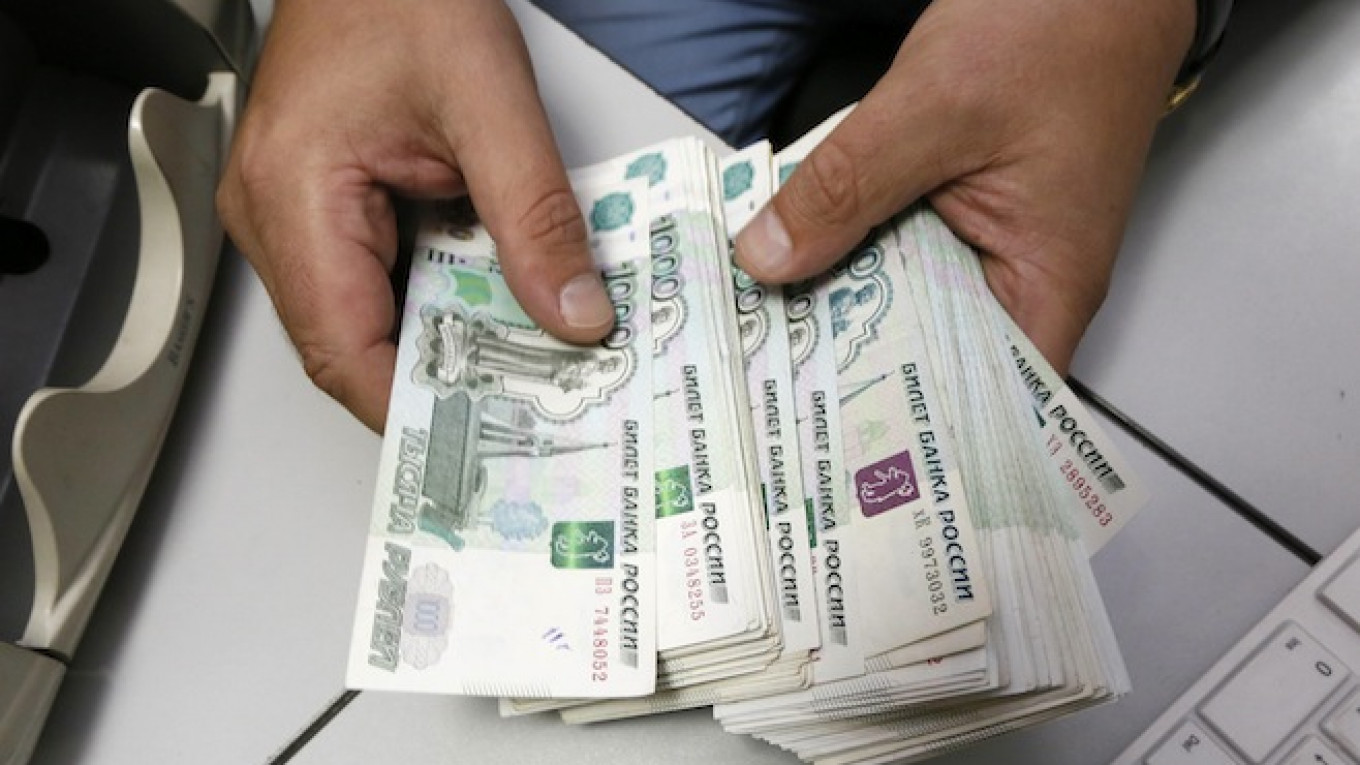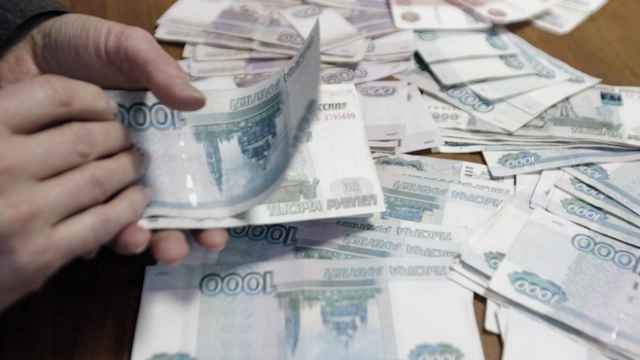A 20 percent currency drop in two days sounds like the opportunity of a lifetime for a savvy hedge fund superstar to earn a fortune. But foreign fund managers say they have mainly stayed away from bets against the ruble because the Russian market is just too unpredictable and costly.
Dragged down by falling oil and Western sanctions over Moscow's involvement in the Ukraine crisis, the ruble has declined steadily against the dollar since June, culminating in a free fall this week.
Moscow has railed against foreign "speculators." But many of the people who might be proud to accept such a title say this time, they weren't to blame.
"It has just become too disorderly," said Paul Lambert, head of currency at Insight Investment who runs a $300 million currency fund and exited his ruble positions about a month ago.
"You need to feel like you can get in and out, you need to feel like there is some kind of predictability. When something is in free fall, like oil prices are or the ruble is, it is very difficult to say: 'Today is the day that enough is enough,'" Lambert said.
Fund managers such as Lambert say it was local demand for dollars in Russia itself that broke the ruble, with Russian firms scrambling to buy hard currency to pay off loans and ordinary Russians queuing up to buy dollars and consumer goods.
Russian companies needed to repay $45 billion in the last three months of the year.
Last week, state-run oil company Rosneft issued 625 billion rubles ($10 billion) worth of bonds. It said the cash, then worth $11 billion, was for domestic projects and would not be sold to buy dollars, but many in the markets took it as a signal to sell.
Expensive, Risky
Some foreign funds say they were kept away from shorting the ruble — borrowing rubles and selling them to place bets that the currency would fall — in part by Central Bank threats to intervene in the market without warning.
Russia's Central Bank still has reserves of more than $400 billion, perhaps not enough to prop up the currency over the long term, but certainly more than enough to crush anyone betting against the ruble on any given day.
"There is that quite strong fear that the Central Bank will step in quite aggressively, and that really prevents the build up of massive shorts … there is simply no massive position-taking either way," said Viktor Szabo, an emerging markets specialist at Aberdeen Asset Management, which has $526 billion under management worldwide.
Russia's soaring interest rates make the cost of borrowing in rubles to bet against the currency, known as the carry cost, high, whatever the outcome of the bet.
"If you want to short the ruble as a speculative investor you either have a very, very strong view and also perfect timing, or the negative carry is going to trash you before you have even started," said Cristian Maggio from TD Securities.
"Speculative positions are very marginal compared with the overall demand for dollars," Maggio said. "It is real demand from domestic players that is pushing the currency weaker and that makes it much more serious than it would be otherwise."
A Message from The Moscow Times:
Dear readers,
We are facing unprecedented challenges. Russia's Prosecutor General's Office has designated The Moscow Times as an "undesirable" organization, criminalizing our work and putting our staff at risk of prosecution. This follows our earlier unjust labeling as a "foreign agent."
These actions are direct attempts to silence independent journalism in Russia. The authorities claim our work "discredits the decisions of the Russian leadership." We see things differently: we strive to provide accurate, unbiased reporting on Russia.
We, the journalists of The Moscow Times, refuse to be silenced. But to continue our work, we need your help.
Your support, no matter how small, makes a world of difference. If you can, please support us monthly starting from just $2. It's quick to set up, and every contribution makes a significant impact.
By supporting The Moscow Times, you're defending open, independent journalism in the face of repression. Thank you for standing with us.
Remind me later.






